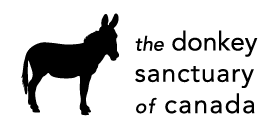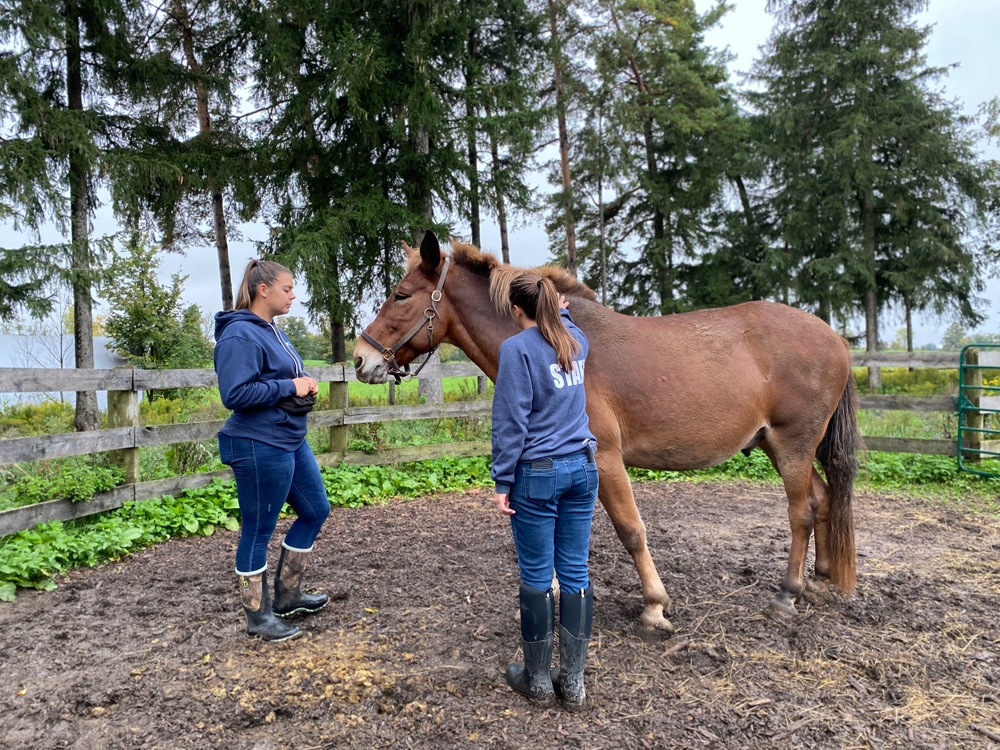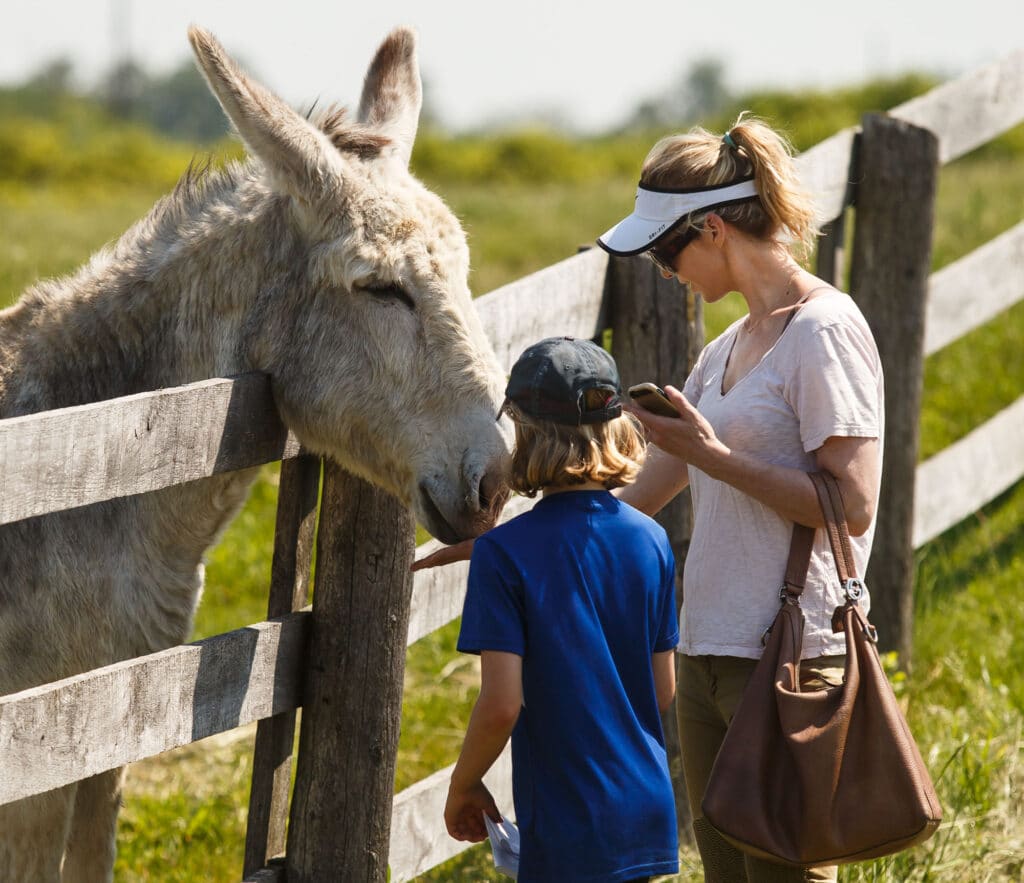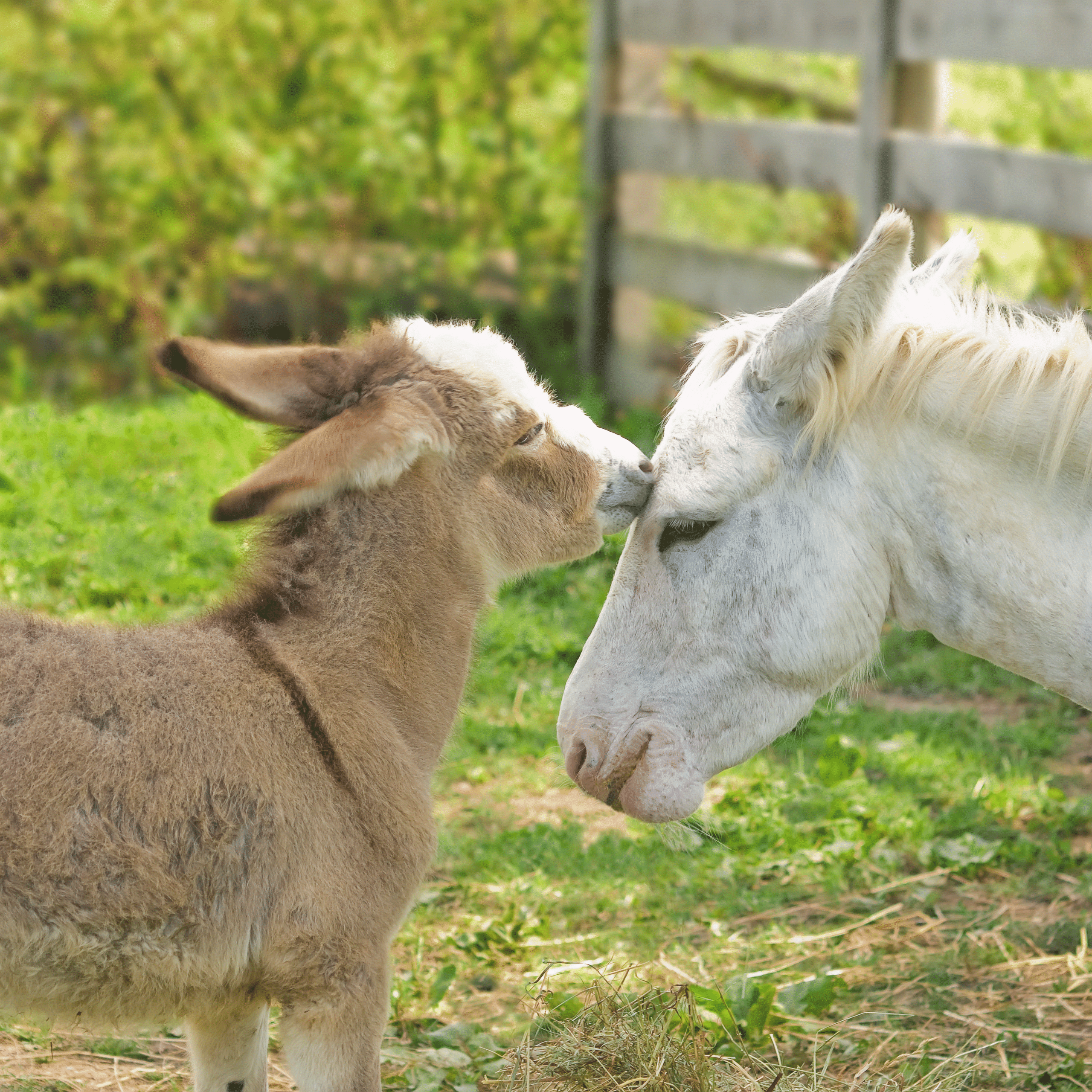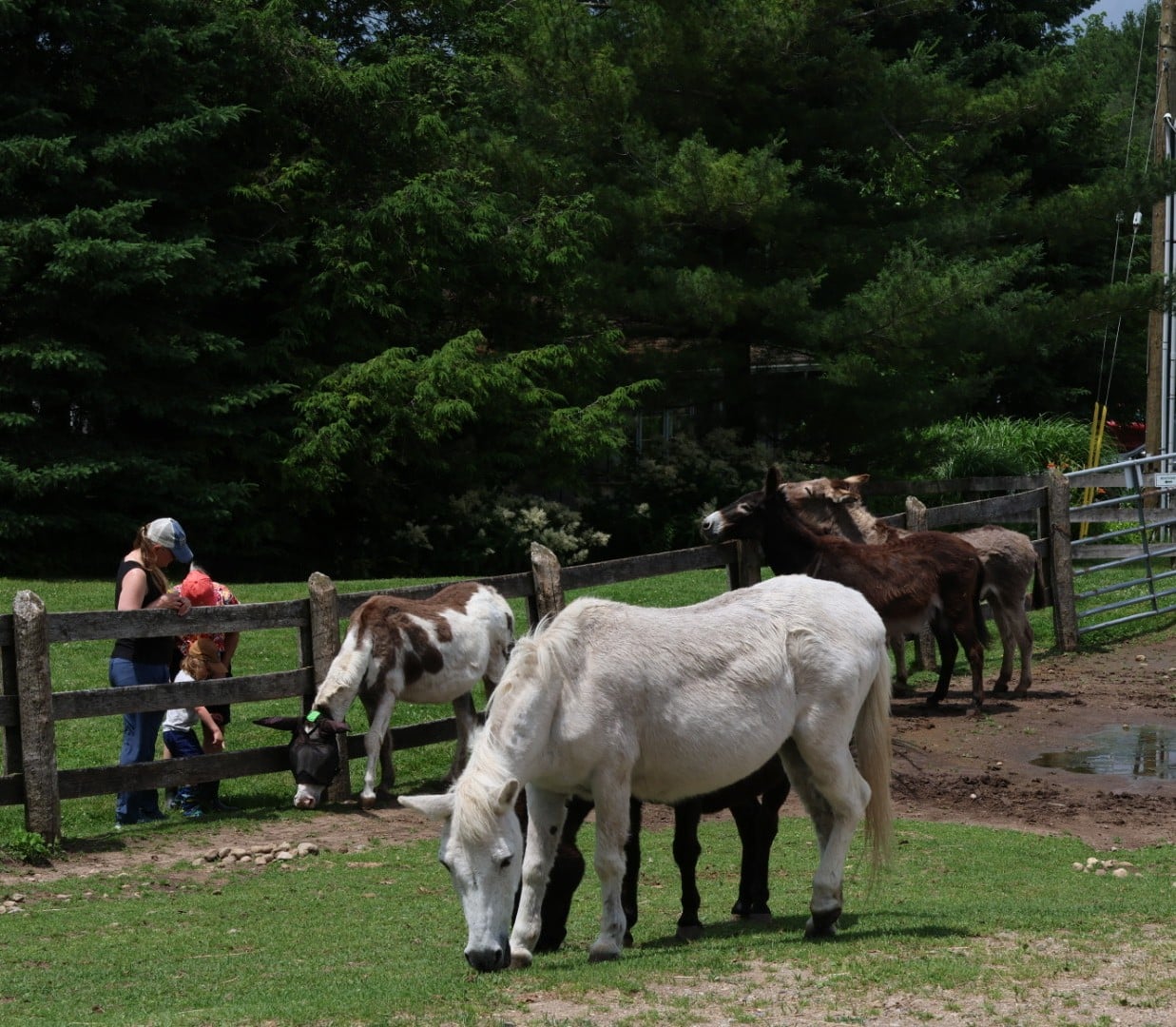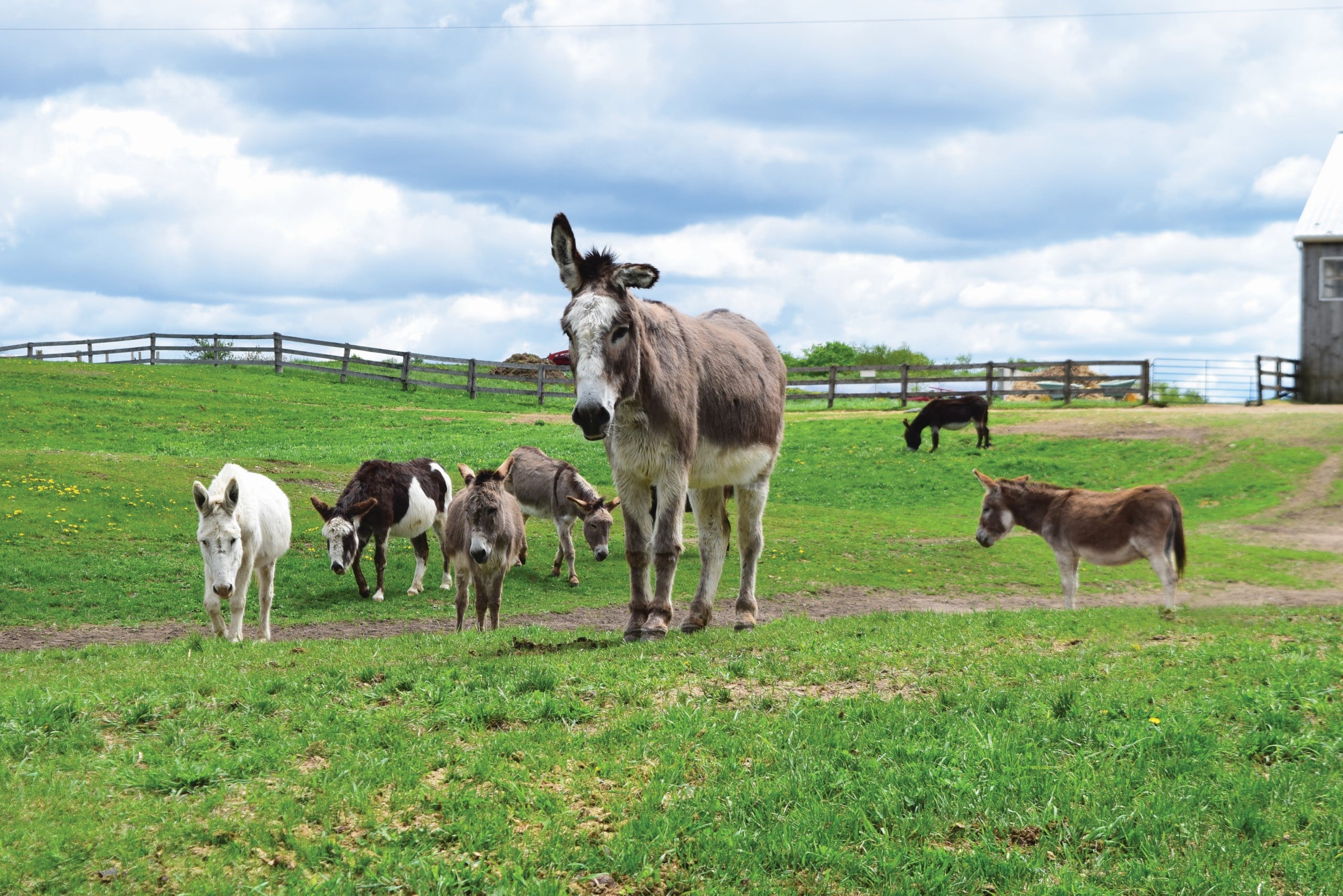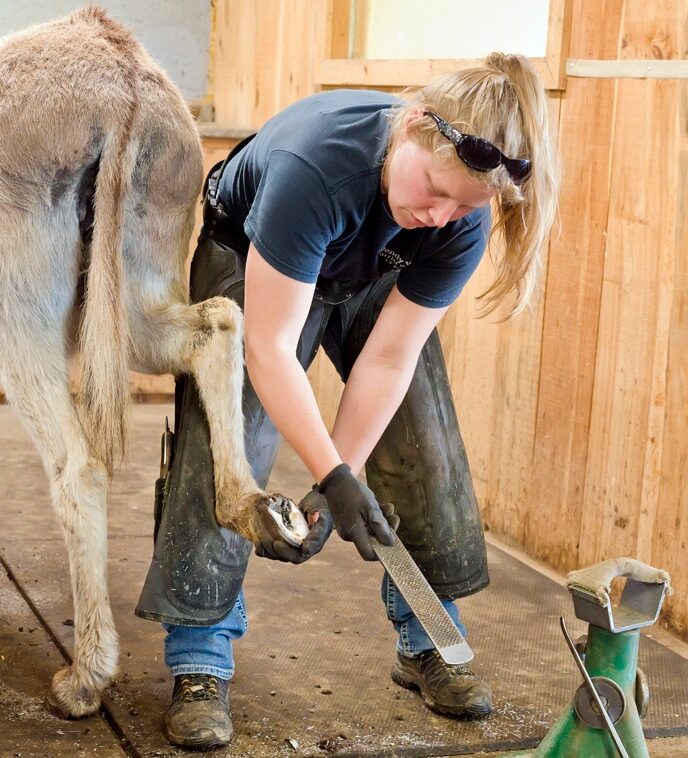FAQs about donkeys
How are donkeys and mules different from horses? They're both equines, right?
Yes, donkeys and mules are both in the equine family, as are horses. However, a donkey is a separate species (Equus asinus) from the horse (Equus ferus caballus).
Physically, donkeys and mules have several distinct characteristics that set them apart from horses. Donkeys are typically smaller, with longer ears, a shorter mane, and a tufted tail. Mules, being a hybrid of a male donkey and a female horse, exhibit traits from both parents. Donkeys and mules have distinct nutrition, care and socialization needs from their horse brethren.
Interestingly, mules are often considered to be more intelligent and independent than horses.
What's the difference between a mule and a hinny?
A mule is a hybrid offspring of a male donkey and a female horse, while a hinny is a hybrid of a male horse and a female donkey. Both mules and hinnies are usually sterile and cannot reproduce.
Hinnies are less common than mules, as the breeding process is more difficult and less successful.
I've heard donkeys can get very attached to one other. Is this true?
Donkeys and mules are social animals that often form strong bonds with their companions and can become very attached to their owners. Donkeys, in particular, have a strong tendency towards pair bonding and can form deep, lifelong connections with another donkey or even with their human caregiver(s).
What's up with the donkey's bray? Why is it so loud?
It’s true that donkeys are known for their loud, braying call, a ‘hee-haw’, sometimes described as a combination of a horse’s whinny and a cow’s moo. It’s believed that the donkey’s bray is so loud because of their elongated vocal cords and the unique shape of their larynx. It’s also believed their loud bray evolved as a long-distance communication mechanism across the vast expanses of desert regions from which donkeys originate.
Mules, on the other hand, tend to have a quieter, more horse-like neigh, but they may also emit a softer, more donkey-like bray.
Do donkeys and mules have similar temperaments?
Donkeys and mules have distinct temperaments. Donkeys are often described as calm, patient, and steady, while mules are known for their intelligence, sure-footedness, and sometimes strong-willed nature.
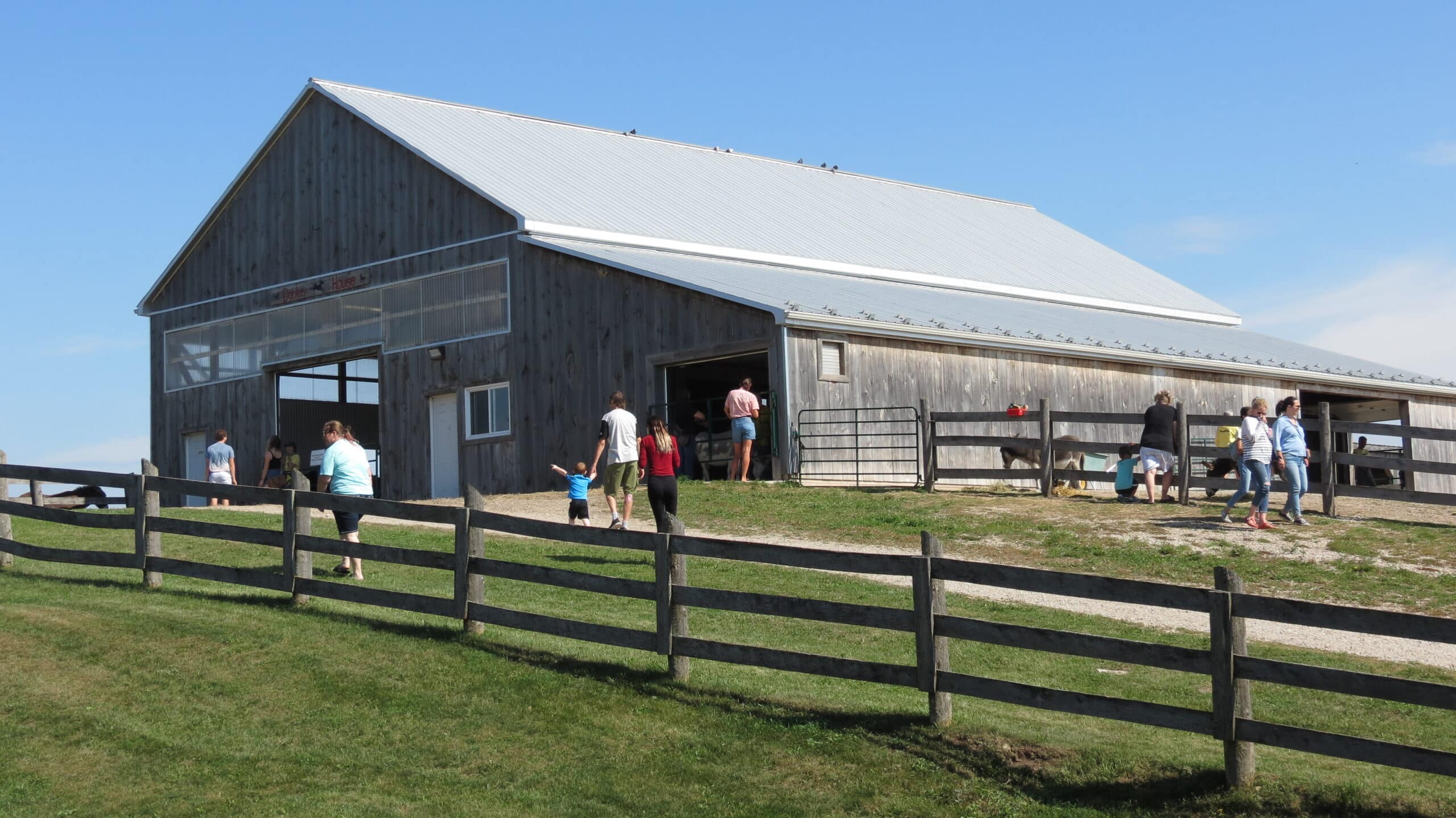
FAQs about the DSC
How do I buy tickets?
Visit this link to buy your ticket(s) and we’ll see you on the Open Day of your choosing!
Why do I need a ticket?
We like to plan ahead here at the DSC, so when you buy a ticket, we know to expect you on an open day. Particularly for reasons of parking capacity, it’s good for us to know how many people will be coming out to visit the donkeys and mules on one of our Open Days.
When we do know that we’ll have more capacity for parking than we have sold tickets, we make some tickets available at the gate. A word of caution, though, we can’t guarantee they won’t be sold out before you get here.
Can I bring my dog?
We ask that our visitors leave their pets at home. Only service animals are permitted at the Sanctuary.
Are strollers allowed?
Yes, strollers are permitted at the DSC except in the Donkey House and Learning Centre.
Is the farm wheelchair-accessible?
Much of the grounds of the DSC is wheelchair-accessible, albeit roughly so. We have a ramp into the Long Ears Boutique and the driveway and some of the walkways are gravelled. However, please do be aware that the terrain is not particularly smooth, so it may be rough going in spots.
